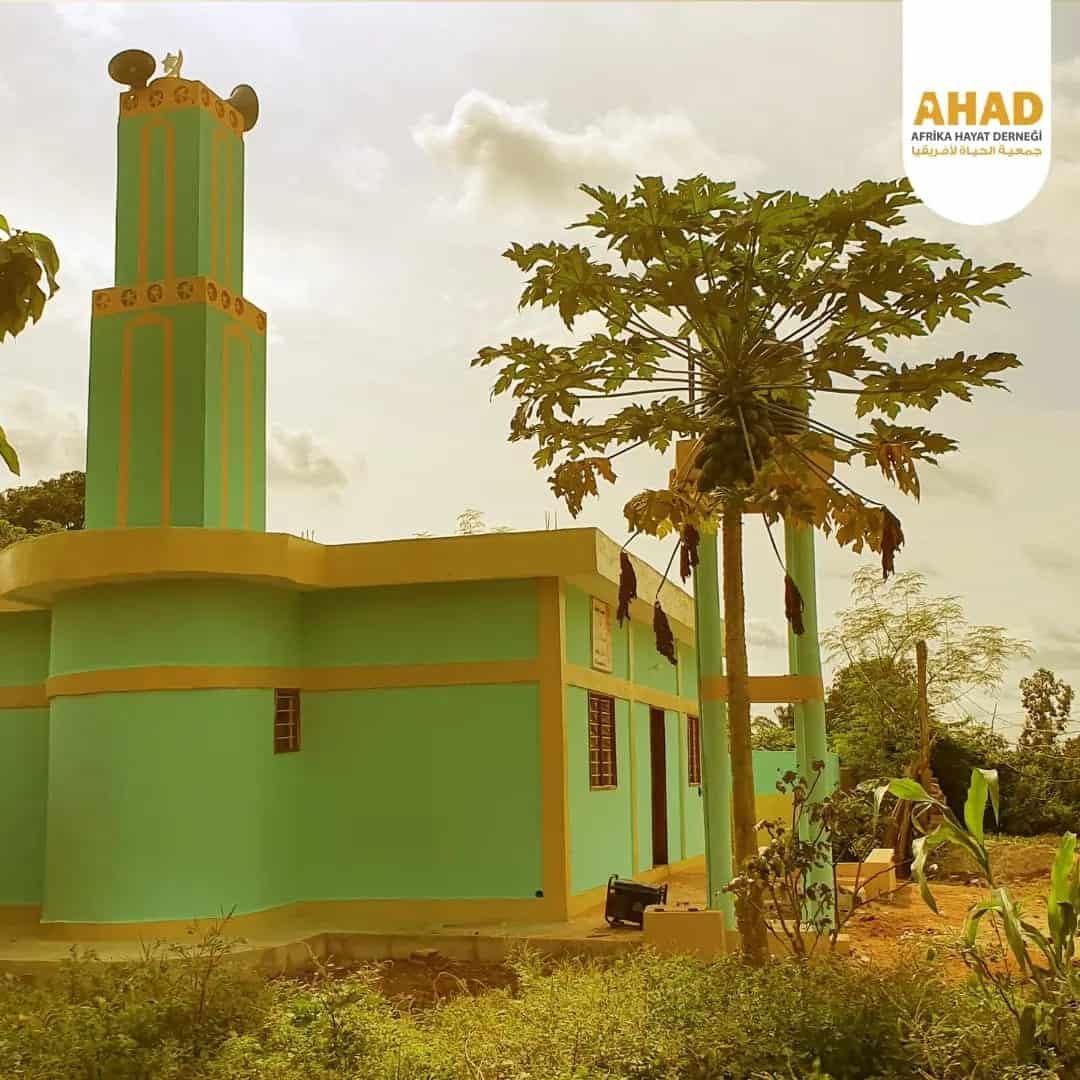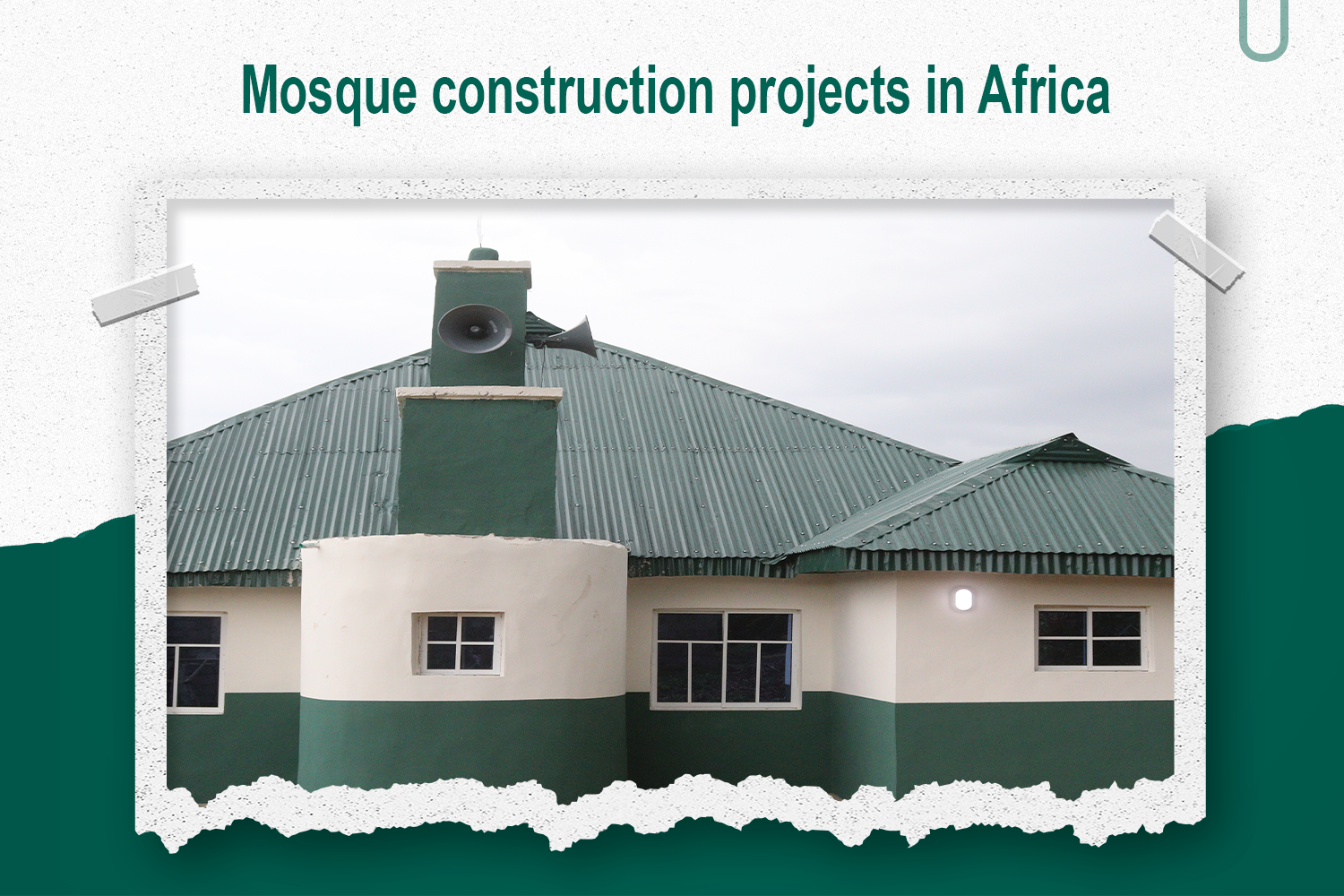Mosque construction projects in Africa
Mosque construction projects in Africa achieve spirituality and strengthen cultural identity
Mosque construction projects in Africa are an essential part of the cultural and spiritual fabric of the continent, as they reflect an amazing diversity of local cultures and traditions. These projects serve to fulfill the primary purpose of mosques, which is to provide a place of worship and promote spiritual and social communication for local communities. Mosque construction projects in Africa vary in size, design and materials used, reflecting diverse influences of Islamic and local cultures.
The beauty of identity: building mosques in Africa
The mosques of Africa reflect a rich cultural diversity and a deep history. It is distinguished by its massive domes and decorative minarets, and its geometric and artistic details that imply Islamic identity. They are made with local materials such as stone and Adobe, decorated with Islamic ornaments on the walls and balconies. It encourages the inclusion of traditional local elements to embody the design in harmony with the local environment and culture. These mosques are not only places of worship, but also represent an integral part of the identity and religious spirit of society.

A comprehensive guide to building mosques in Africa
In the construction of a mosque in Africa, a series of key steps have to be followed to ensure the success of the project and to meet local and cultural needs. Here’s a comprehensive guide explaining each step of this process:
Before proceeding with the construction of the mosque, a thorough research should be conducted to determine the appropriate location and analyze local needs. This includes consulting scientists and the local community to ensure an accurate understanding of the challenges and opportunities available.
In cooperation with specialized Architects, the mosque is designed using appropriate Islamic architectural standards and taking into account local environmental and cultural conditions.
The construction of the mosque requires obtaining the necessary licenses and approvals from the relevant authorities, and it must be ensured that all legal requirements are met.
The necessary funding for the project should be secured through local fundraising and cooperation with international agencies and charitable foundations.
Using experienced contractors, the start of the construction and construction process is carried out with careful quality control and compliance with the required standards.
The necessary equipment is added to the mosque such as furniture, religious equipment and lighting, taking care of an aesthetic interior and exterior design that reflects the Islamic identity and local culture.
After the completion of the construction, an opening ceremony of the mosque is organized and an administrative committee is formed to manage the mosque and provide religious and social services to the local community.
These steps constitute a comprehensive guide for the construction of a mosque in Africa, emphasizing the importance of the compatibility of the project with the local culture and conditions to ensure its success.

Factors determining the cost of building mosques in Africa
The cost of building a mosque in Africa varies based on several factors including location, size, design, and materials used. Here’s a look at the factors affecting the cost of this type of project:
The effects of geographical location and local real estate play a big role in determining the cost of building a mosque.
The space of the mosque and the intricacies of the design affect the cost, as large mosques or artistic designs require additional resources.
The quality and cost of materials used in construction play an important role in determining the final cost, be it modern or traditional.
The cost of Labor varies depending on their skill and availability, which affects the total cost of the project.
The addition of facilities such as libraries and Islamic schools increases the final cost of the project.
The use of modern technology and advanced equipment can raise the cost of building a mosque.
The costs of transporting materials and workers are an influential factor in determining the total cost of the project.
These factors play a decisive role in determining the cost of building mosques in Africa, and require careful consideration and careful planning to ensure that the project is implemented successfully and within the established budget.
The importance of building mosques in Africa
The construction of mosques in Africa carries great importance both religiously and culturally, and its significance can be summarized in several points:
1. Providing a place of worship:
Mosques provide dedicated spaces for performing prayers, performing other religious acts and reading the Holy Quran, and this enhances the religious practices of Muslims in the community.
2. Promoting spirituality and social solidarity:
Mosques serve as centers of spiritual and social communication, where Muslims gather to pray, exchange experiences and religious knowledge, promote solidarity and cooperation between members of society.
3. Preservation of cultural identity:
The designs of mosques in Africa reflect the rich cultural diversity of the continent, preserve the local heritage and traditions, which contributes to the preservation of cultural identity and enhance pride in cultural heritage.
4. Promote teaching and learning:
Some mosques include Islamic schools and libraries to spread knowledge and teach young people Islamic values and religious knowledge, which contributes to improving the level of education in society.
5. Promotion of peace and tolerance:
Mosques serve as centers of religious dialogue and peaceful coexistence between different sects and ethnicities, promote the values of tolerance and peaceful coexistence in society.
The construction of mosques in Africa plays an important role in promoting religious spirituality, social solidarity and the preservation of cultural identity, which contributes to the promotion of stability and comprehensive development on the continent.
Ahad humanitarian society the spirit of giving and achieving positive impact in Africa
Charity work plays an important role in improving the lives of others and promoting positivity in society. By providing support and assistance to the poor and needy, we build bridges of solidarity and social cooperation. At the same time, charity work positively affects our personal life, as it gives us a feeling of happiness, satisfaction and the feeling that we are part of a caring community for others.
The impact of doing good in my life cannot be summed up in words, it gives me a sense of psychological comfort and inner happiness. When I work for the afterlife and donate to the poor through the Ahad humanitarian Association, I feel proud and reassured that I have given something that contributes to improving the lives of others and alleviating their suffering.
AHAD humanitarian association stands out for its multiple and diverse efforts in serving people, as its projects are not limited to the construction of mosques only, but also include a wide range of humanitarian initiatives on the ground. From opening wells to provide clean water, to distributing dairy goats to families to improve their livelihood, and even supporting the educational sector and caring for schools, AHAD humanitarian association works hard to achieve a positive impact on people’s lives and provide aid and assistance in issues of concern to society.
Ahad humanitarian association is the perfect choice, it works hard and persistently to ensure that aid reaches those who need it effectively
You can visit the ahad Association website to find out more about the projects it offers
Related articles:
The importance and bounty of the month of Ramadan
Join us in our message by donating




